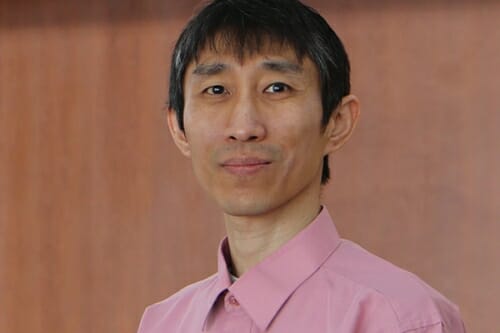Waisman Center welcomes a center leader to director position
Qiang Chang, a longstanding member of the University of Wisconsin–Madison Waisman Center’s leadership team, has been named the new director of the center following a nationwide search.
Chang will assume the position on July 1 and report to the UW–Madison vice chancellor for research and graduate education.
Chang is an associate professor of genetics and neurology and interim director of the Waisman Center’s Intellectual and Developmental Disabilities Research Center (IDDRC). He is also the principal investigator for the Waisman Center core grant awarded by the Eunice Kennedy Shriver National Institute of Child Health and Human Development (U54 HD090256). Chang, who has a Ph.D. from the University of Pennsylvania, joined the UW–Madison faculty in 2007, following postdoctoral training at MIT. His research interests focus on Rett syndrome, a debilitating genetic condition that primarily affects girls.
“The Waisman Center has a long and rich history as a multidisciplinary center devoted to the study of human development, intellectual and developmental disabilities, and neurodegenerative diseases throughout the lifespan,” says Chang, who will be the center’s sixth director.
“It’s truly an honor to be able to lead such a dedicated and world-class cohort of faculty and affiliates that are working together in basic and translational research to understand developmental disabilities and develop effective treatments for some of the most challenging disorders. I also look forward to fostering the center’s strong partnerships on campus and in the community.”
Bradley Christian, professor of medical physics and psychiatry, co-director of the Waisman Brain Imaging Core and member of the center’s executive committee, led the director search committee.
“Dr. Qiang Chang is an internationally renowned expert in studying the genetic underpinnings of Rett syndrome. His research serves as an exemplary illustration of the Waisman Center’s commitment to investigations of intellectual and developmental disabilities,” says Christian.
“It’s truly an honor to be able to lead such a dedicated and world-class cohort of faculty and affiliates that are working together in basic and translational research to understand developmental disabilities and develop effective treatments for some of the most challenging disorders.”
Qiang Chang
“In addition to his outstanding scientific skills, he also brings a wide breadth of institutional knowledge which emphasizes a balance of research, education and community outreach. Dr. Chang is ideally equipped to guide the Waisman Center towards fulfillment of its mission as a world-class center for advancing knowledge about human development, developmental disabilities and neurodegenerative diseases.”
Waisman Center researchers like Chang are engaged in both biological and behavioral research on developmental disabilities, such as autism, Down syndrome, cerebral palsy, and communication disorders and neurodegenerative diseases, such as ALS and Parkinson’s. The Waisman Center is also home to specialty clinics with more than 8,000 patient visits each year, a preschool with developmentally diverse enrollment, and a biomanufacturing facility for phase I and II human clinical trials. Many health concerns bring people to the Waisman Center from throughout Wisconsin, as well as neighboring states and other parts of the country.
“Qiang is a first-rate scientist and has served in a series of leadership roles at the Waisman Center,” says Norman Drinkwater, interim vice chancellor for research and graduate education. “He is well-positioned to lead the Waisman Center to a future that is as exciting and impactful as its rich history demands.”





